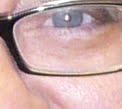“Truth is stranger than fiction, but it is because Fiction is obliged to stick to possibilities; Truth isn't.”
Mark Twain
 |
| Discovery |
I’ve been thinking of this for a long time. That's a fact. Why don’t we see loads of fiction unfolding in the blogosphere? Tales that draw us into to imaginary worlds, exploring the interior of minds that were invented? What would Mark Twain do with this medium, this internet of no particular reason except to share facts and opinions? Lately, even the publishing industry has been taken aback from the success of fiction in books to the point where for the last decade people have tried turning their works of fiction into “memoirs” only to admit later that they lied (see Beth Hayden’s blog today on Copyblogger).
The more I learned about writing fiction in the medium that I chose - film - the less fun it became. There was little play for me in laying out the whole thing on notecards before I wrote the first line of dialogue. I understood the part of Twain’s quote that went, “...Fiction is obliged to stick with possibilities...” It meant that I had to decide what the possible outcome would be and build my story around it. Whereas in the realm of journalism and facts, well I watch the stories unfold often to my amazement, sometimes to my disdain and I'm never really committed by that observation to the truth. A great fiction writer has to have a sense of the “truth” before writing about it. A journalist finds out the “truth” as it unfolds, only making a conclusion, if making a conclusion, at the very end. Bloggers freely state opinions and offer facts and tie it up, but only the best build a frame of context, and, if they do this much, it might be somewhat fictional. The essential thing with blogs is that they've determined a point of view about reality and they find facts to uphold it. Does this mean it is the truth? Does this make it journalism?
This must be very confusing to creative writing teachers. Classes I have had since my youth, laid out a false expectation that as I wrote fiction I would discover something I didn’t know while writing a piece of fiction. There is no discovery for a fiction writer, only for a fiction writer’s readers.
But what of the audience? Why has the audience lost respect for the amazing feat of the fiction writer to find the truth AND THEN tell it in a way that the audience can discover it? Why is it unacceptable, for instance, to posit that the Bible itself is only part fact, and mostly fiction taught by the greatest minds of its time through poetry and story? Why must we have the literal belief of everything in order to own its truth? Have we become a world obsessed by fact-finding because of the journalistic claim that that is what they are presenting?
Lately, I’ve become addicted to Aaron Sorkin’s new show on HBO, “The Newsroom,” and the obsession its characters have with sticking with the facts. They have created etiquette about what is wrong with America by pointing out that what is now presented on television as fact is actually fiction and fantasy. I love this show and I believe the point of view completely. Yet, I do not ever forget that it is imaginary, that there are NO news organizations pursuing the facts in this way today except maybe a comedian named Jon Stewart. If Aaron Sorkin had based the show on "The Daily Show" then it would be virtually a piece of journalism and we would watch it unfold, but then Aaron Sorkin could not be loyal to his possibilities about what would happen if journalists told the truth.
So, today, I have no answer to my question. This makes me a journalist more than a fiction writer. Sigh. I am in a state of discovery. I admit it.

No comments:
Post a Comment